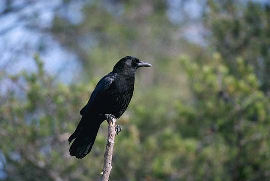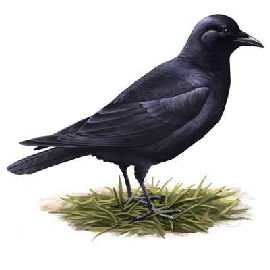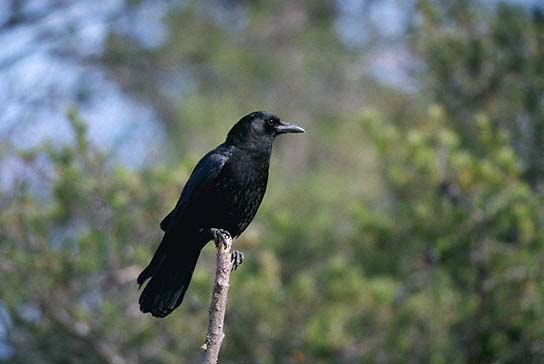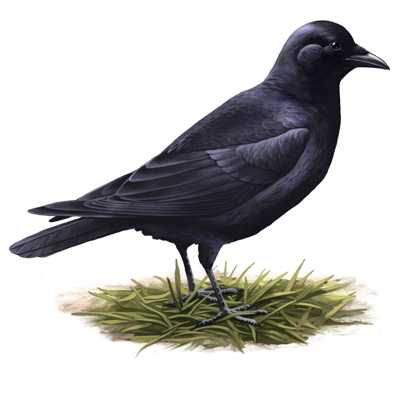Perching Birds
Description
17-21" (43-53 cm). Stocky black bird with stout bill and fan-shaped tail. Smaller Northwestern Crow has hoarser voice; larger Common Raven has wedge-shaped tail.
Nesting
4-6 dull green eggs, spotted with dark brown, in a large mass of twigs and sticks lined with feathers, grass, and rootlets, and placed in a tree.
Range
Breeds from British Columbia, central interior Canada, and Newfoundland south to southern California, Gulf Coast, and Florida. Winters north to southern Canada.
Voice
Familiar caw-caw or caa-caa.
Discussion
Intelligent, wary, virtually omnivorous, and with a high reproductive capacity, the American Crow is undoubtedly much more numerous than it was before the arrival of settlers. An opportunist in its feeding, the American Crow consumes a great variety of plant and animal food: seeds, garbage, insects, mice. Its nest-plundering is decried, but in orchards and fields it destroys many injurious insects such as grasshoppers and cutworms. However, the labeling of birds as either "harmful" or "useful" is misleading and antiquated. Crows do destroy many eggs and nestlings of woodland and meadow birds, but they also weed out the weak and feeble, and they alert the animals in a neighborhood when danger approaches.




